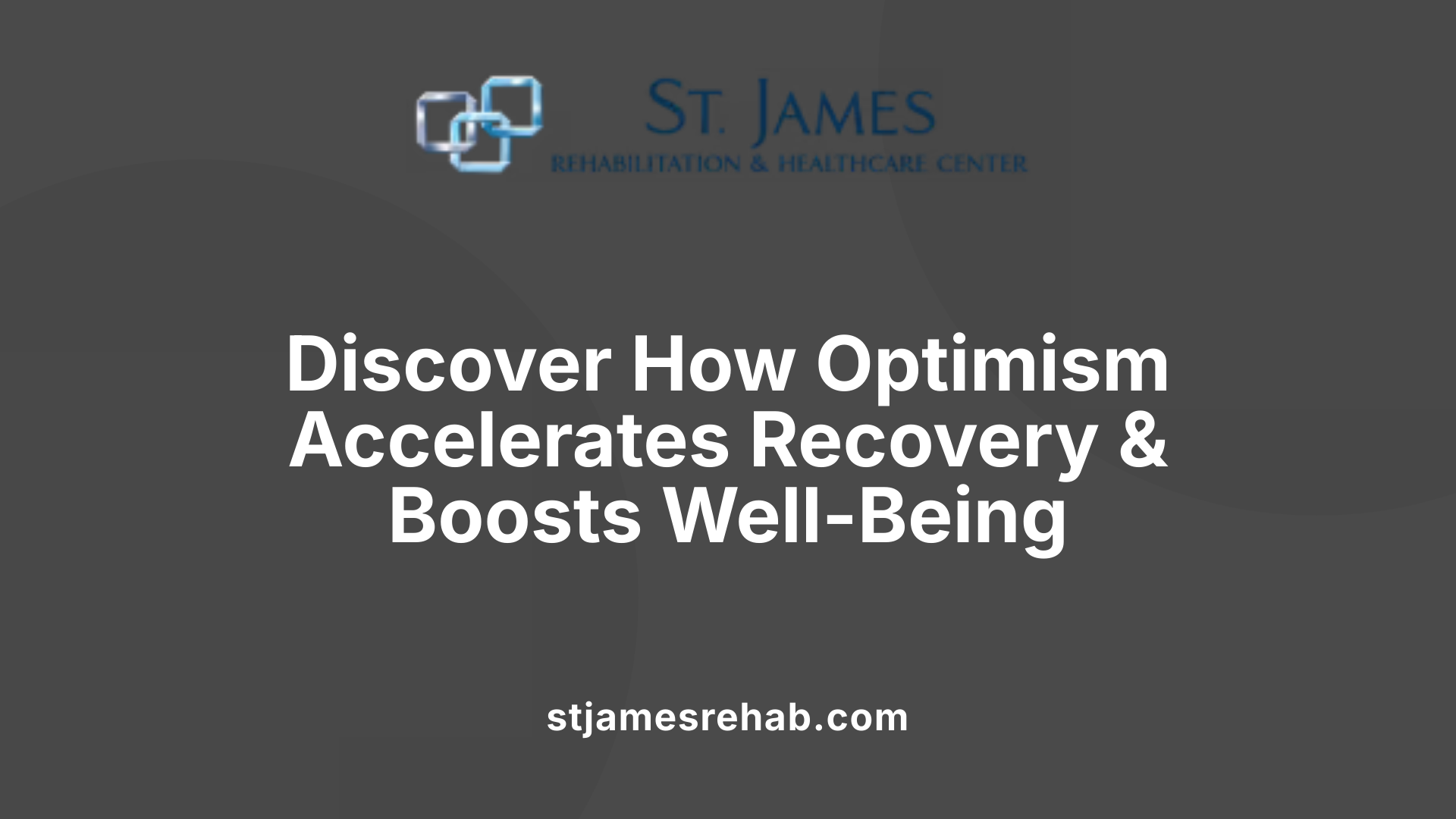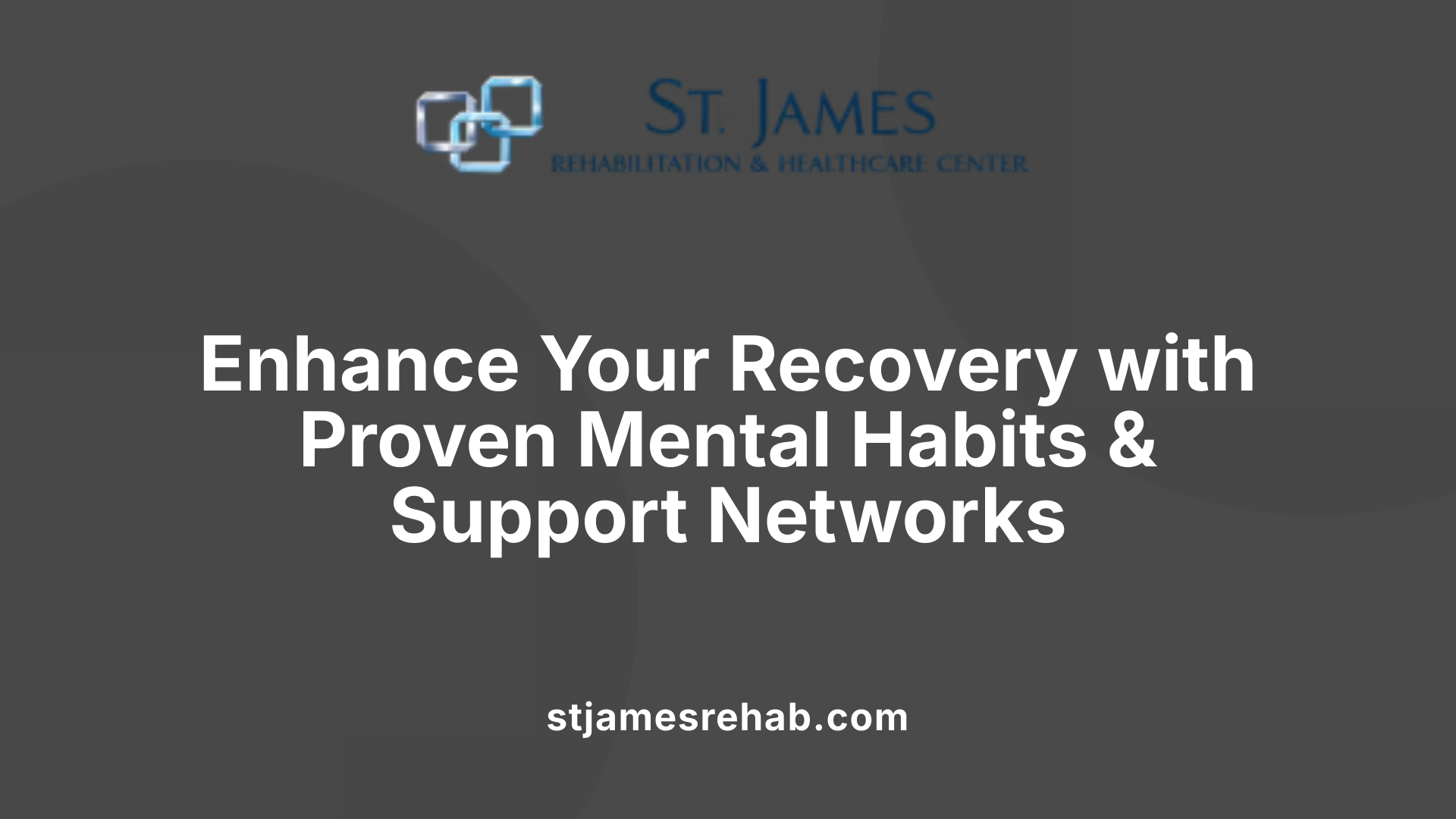The Power of Positive Thinking in Your Holistic Rehabilitation
Harnessing Optimism for Complete Healing and Wellness

The Transformative Role of Positive Thinking in Holistic Recovery
In holistic rehabilitation, the significance of cultivating a positive mindset cannot be overstated. It impacts emotional, mental, and physical health, serving as a catalyst for resilient recovery and overall well-being. This article explores how positive thinking enhances healing processes, supported by scientific evidence, strategic practices, and philosophical insights that integrate mind, body, and spirit.
Understanding Positive Thinking and Its Fundamental Role in Recovery

What is positive thinking?
Positive thinking is the practice of focusing on the good aspects of life and approaching challenges with an optimistic outlook. It involves cultivating positive thoughts, self-talk, and attitudes that enhance both mental and physical health. When individuals maintain a positive mindset, they tend to interpret setbacks as opportunities for growth rather than insurmountable obstacles.
Techniques to develop positive thinking include keeping gratitude journals, which help focus on what is going well; reframing negative thoughts to see them from a more hopeful perspective; visualization practices that imagine successful outcomes; and mindfulness, which promotes present-moment awareness and calmness.
The benefits of positive thinking extend to improved stress management, better immune function, longer lifespan, and increased resilience. Although cultivating positivity requires effort and practice, it’s a skill that can be learned and reinforced. It’s important, however, to balance optimism with realism to avoid unrealistic expectations or toxic positivity.
Techniques and strategies for cultivating a positive mindset during rehabilitation
Fostering a positive outlook during recovery involves several effective strategies. Practicing gratitude—acknowledging what one is thankful for—can shift focus away from problems, fostering optimism.
Mindfulness meditation and journaling are powerful tools that help individuals stay grounded and reflect on positive aspects of their journey.
Engaging in physical activities, hobbies, and creative therapies like art and music therapy can lift spirits and build resilience.
Building a support network of positive influences, such as recovery support groups, friends, and family members, provides emotional reinforcement and encouragement.
Using positive self-talk, affirmations, and visualization helps reinforce confidence and challenge negative thoughts. Setting meaningful, achievable goals and actively taking responsibility for progress further strengthen motivation, self-compassion, and long-term change.
What scientific evidence supports the role of positive thinking in healing and recovery?
Research shows that positive thinking is linked to numerous health benefits. Studies indicate that individuals with optimistic outlooks are less likely to suffer from heart attacks and cardiovascular diseases. For example, people who maintain a sunny outlook are about 13% less likely to experience coronary events.
Brain imaging research reveals that positive emotions activate reward pathways in the brain, promoting feelings of well-being. These neural activations, along with chemical releases such as dopamine and serotonin, are associated with better health outcomes.
Interventions designed to foster positive thinking, including cognitive training and mindfulness practices, have been shown to enhance resilience and life satisfaction, especially in older adults. Although direct causal pathways are still under investigation, the overwhelming evidence suggests that cultivating a positive mindset supports healing and accelerates recovery processes.
How does positive thinking impact emotional, mental, and spiritual well-being?
Adopting a positive outlook significantly boosts emotional and mental health by fostering resilience and a strong sense of purpose. It helps manage stress more effectively, which lowers the risk of depression, anxiety, and cardiovascular issues.
Practices such as positive self-talk, gratitude, and mindfulness enhance emotional resilience and facilitate social connections. These activities promote feelings of compassion, contentment, and peace.
Spiritually, positive thinking encourages a holistic approach to well-being. It nurtures a sense of hope and interconnectedness, often inspiring individuals to pursue meaningful goals or engage in spiritual or reflective practices.
Overall, a positive mindset supports healthier lifestyles, deeper relationships, and an enriched sense of life’s purpose.
What benefits does positive thinking offer to overall health and recovery?
The advantages of positive thinking in health and recovery are extensive. It enhances emotional regulation, lowers stress levels, and improves resilience—making it easier to handle setbacks.
Physically, it is associated with healthier cardiovascular functions, a strengthened immune system, and a lower incidence of mental health conditions like depression and anxiety.
Positive thinking also influences health behaviors. Optimistic individuals are more likely to engage in regular exercise, eat nutritious foods, and avoid harmful habits like smoking or excessive alcohol consumption.
In sum, cultivating a positive mindset can lead to improved quality of life, quicker recovery from illnesses, and greater overall well-being during the healing process.
Strategies and Practices to Reinforce a Positive Outlook in Recovery

How can incorporating positive mental habits enhance holistic health practices?
Incorporating positive mental habits such as mindfulness, gratitude, and self-compassion plays a vital role in holistic health by fostering emotional resilience and reducing stress. Establishing routines that promote mental well-being—like regular meditation, deep breathing exercises, and maintaining a gratitude journal—supports emotional stability and mental clarity. These practices help create a sense of inner balance and improve overall functioning across physical, emotional, and social domains. By focusing on positive thoughts and limiting negative self-talk, individuals can strengthen their mental health and make healthier lifestyle choices, which also benefits physical and spiritual health. Engaging in hobbies, social activities, and connecting with supportive communities enriches emotional support and joy. Ultimately, nurturing these mental habits leads to a more integrated and balanced approach to well-being that prioritizes a connected mind-body-spirit harmony.
What role does mindset play in health and wellness settings?
Mindset is a fundamental component in health and wellness because it influences how individuals perceive and respond to their physical and mental conditions. Scientific approaches, like those used by Mindset Health, leverage positive psychology techniques such as hypnotherapy and educational programs to help people self-manage chronic illnesses without reliance solely on medication. These programs empower individuals to modify their perceptions of pain, symptoms, and emotional states by cultivating a positive outlook and mental focus. Research underscores that a resilient mindset can influence physical health by reducing stress, regulating hormones, and promoting better health behaviors. In essence, fostering a constructive mindset enables individuals to optimize their health outcomes, reinforcing the connection between mental attitude and physical well-being.
How does positive outlook influence stress management and resilience?
Maintaining a positive outlook significantly improves how people manage stress and enhances their resilience to life's challenges. Optimism and positive emotions broaden one's coping strategies, enabling individuals to approach difficulties with hope and confidence. Research shows that an optimistic attitude enhances emotional regulation, diminishes feelings of helplessness, and fosters the use of constructive problem-solving approaches. Techniques such as gratitude exercises, mindfulness, and cognitive reframing reinforce this optimistic perspective. Consequently, positive thinking not only helps in reducing the physiological impacts of stress—like lowered cortisol levels—but also empowers individuals to recover more quickly from setbacks, building mental strength over time.
What is the significance of positive thinking in improving the effectiveness of rehabilitation processes?
Positive thinking is crucial in rehabilitation because it fosters hope, motivation, and resilience, which are vital for active participation and perseverance in recovery efforts. Studies have indicated that individuals who develop a hopeful and optimistic outlook tend to report higher quality of life and better treatment adherence. This mental attitude supports emotional regulation, reduces stress, and helps manage setbacks more adaptively. Such an environment promotes neuroplasticity—the brain's ability to reorganize itself—which can accelerate recovery and reinforce new healthy behaviors. Furthermore, cultivating optimism helps maintain realistic goal setting and personal responsibility, both essential in achieving long-term recovery goals.
How can philosophical practices like yoga and Indian philosophy help enhance positive thinking?
Yoga and Indian philosophical teachings contribute profoundly to cultivating positive thoughts through practices that promote mental discipline and emotional harmony. Meditation, mantra chanting, and mindful breathing calm the mind and reduce negative mental tendencies. The yamas and niyamas—ethical principles of yoga—encourage virtues like truthfulness, non-violence, contentment, and compassion, which nurture a positive worldview. Practicing physical postures (asanas) and breath control (pranayama) enhances the clarity and stability of mind, reducing anxiety and fostering happiness. Indian philosophy emphasizes interconnectedness, acceptance, and spiritual growth, guiding individuals toward optimism and inner peace. Incorporating these practices into daily routines creates a bottom-up transformation—shifting mental patterns from negativity and stress to positivity, contentment, and resilience. This integration not only supports mental health but also elevates overall life satisfaction and well-being.
Fostering a Culture of Positivity for Sustainable Health
Incorporating positive thinking into holistic rehabilitation is a powerful approach that aligns the mind, body, and spirit, leading to enhanced recovery outcomes, improved emotional balance, and a healthier lifestyle. Through scientific understanding, practical techniques, and philosophical insights, individuals can cultivate resilience, optimism, and inner peace. Making positivity a core element of the healing journey not only accelerates recovery but also enriches overall quality of life, ensuring a more balanced, fulfilling existence.
References
- The Power of Positive Thinking in Recovery - Free By The Sea
- The Power of Positive Thinking | Johns Hopkins Medicine
- The Power of Positive Thinking in Addiction Recovery
- Positive thinking: Stop negative self-talk to reduce stress - Mayo Clinic
- The Power of a Positive Mindset in Rehab Therapy - Net Health
- The Power of Positive Thinking in Recovery - Northpoint Washington
- 10 Ways the Power of Positive Thinking Can Benefit Your Recovery
- Power Of Positive Thinking - Holistic Health Care





